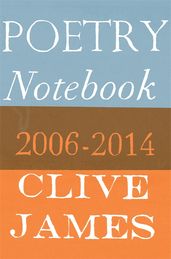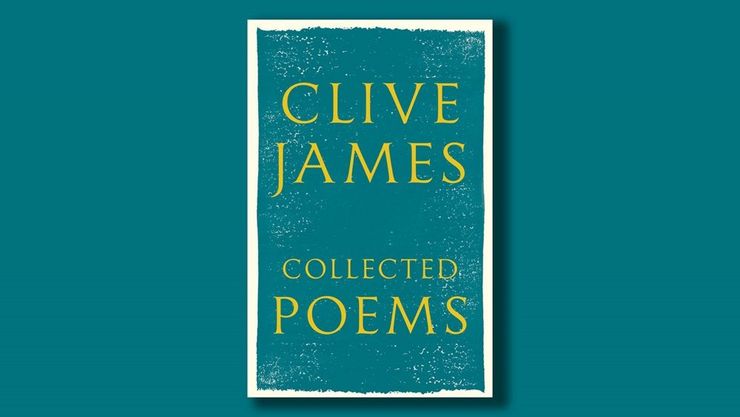Clive James's favourite poetry books
Discover the poets and poetry books that inspired Clive James, from Yeats to Larkin and Auden.

Clive James made his name as a critic, broadcaster, essayist, novelist and poet. Collected Poems 1958 - 2015 is Clive’s own selection from over fifty years' work in verse: from his early satires to his later poems looking back over his extraordinarily rich life with a clear-eyed and unflinching honesty.
Extracted from Clive James's Poetry Notebook, a treasure trove of essays and musings on his most-loved art, here are the poetry books he reveals as inspiration behind his own vibrant poetry.
Discover our edit of the best poetry books.
The Tower
by W.B. Yeats
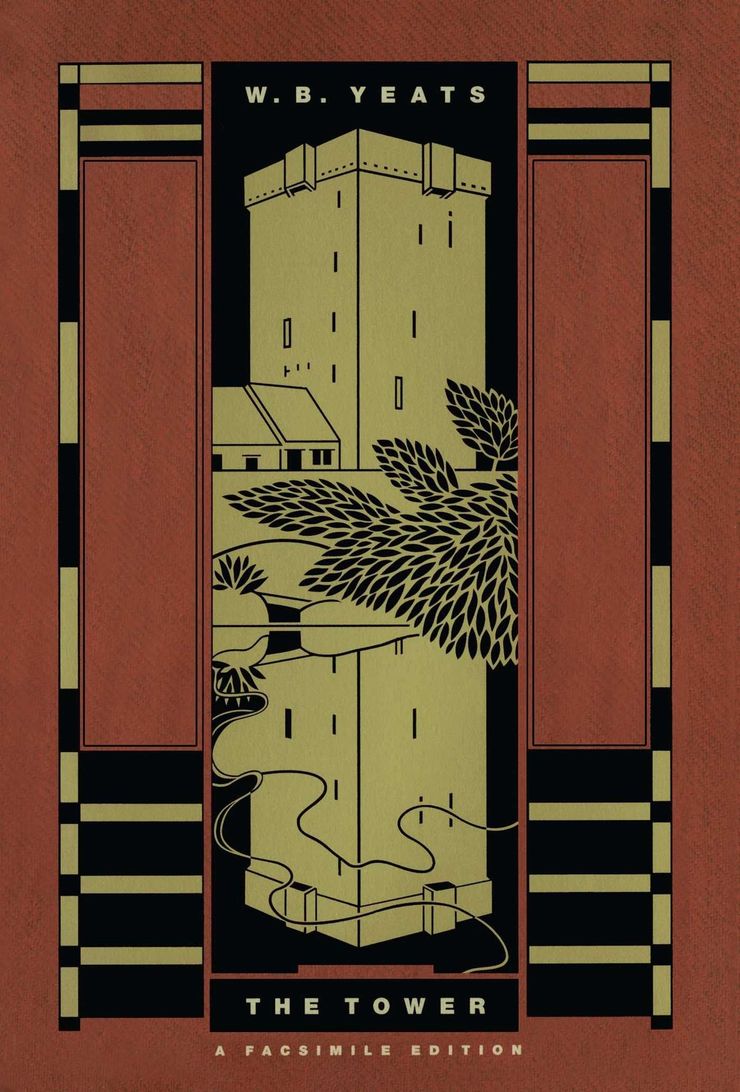
Every separate collection of Yeats’s poems from Responsibilities (1918) onward is tremendous, but The Tower is my favourite. ‘That is no country for old men. The young / In one another’s arms . . .’ Not a bad start. I’m lucky enough to own a copy of the book – bought long ago as part of a job lot in an Oxford antiquarian bookshop on its way out of business – but I wouldn’t fancy even the most determined enthusiast’s chances of finding a hardback copy second-hand today. It can be found easily, though, in the Collected Poems, where the groupings of the original individual volumes are sensibly preserved. (This is a good rule, often broken by misguided scholarly editors who restore the chronological order that the poet himself once carefully avoided in favour of something more interesting.)
The only threat that Yeats’s Collected Poems offers is that the beginning reader might get caught up in the Celtic fairyland of the great man’s winsome early days. Cut straight to The Tower and you’re in the middle of his full-blown achievement, with masterpieces arriving one after the other: ‘Sailing to Byzantium’, ‘Nineteen Hundred and Nineteen’, ‘Leda and the Swan’, ‘Among School Children’ and (last poem in the book, and one of the greatest poems written in the twentieth century) ‘All Soul’s Night’. In everyday life Yeats stayed young and foolish too long, but in the full maturity of his art, he got such a rich music out of seemingly ordinary speech that the language found and kept its ideal speaker.
The Collected Poems
by Robert Frost
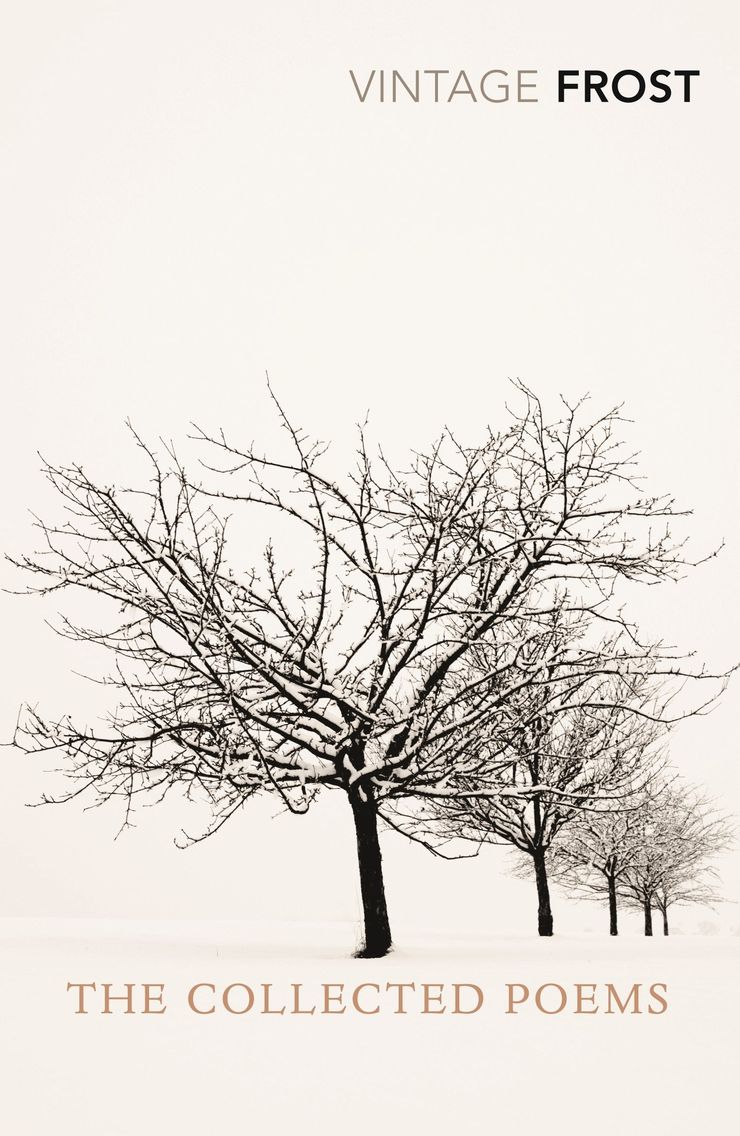
Frost’s individual collections are useful to have, but the full Collected Poems is the book that matters, because his masterpieces, which were seldom of more than medium length at most, are scattered evenly throughout his long and fruitful career. The trick with the Collected Poems is to avoid the longer poems until the shorter ones have taken over your mind. The longer poems have good things in them, but the self-contained showpiece poems give you his essence, and his essence is one you should learn to recognize before watching him distribute it over the framework of an extended edifice. In his case, familiarity breeds reverence: never dodge a Frost lyric just because it is famous. ‘The Gift Outright’ isn’t any less of an achievement because Frost thought it elementary enough for him to recite at JFK’s inaugural.
A public life is one of the things Frost wanted for his poetry. The idea of obscurity for its own sake repelled him. Though he could play the part of cracker-barrel philosopher, his reputation for folksiness was largely foisted on him by those who had a vested interest in the oblique and wanted poetry to be taught rather than remembered. Frost wanted it to engage the reader straight away, even when the appeal was subtle. He sets out (the present tense seems more and more appropriate) to get his lines into your head, and with a short but perfect achievement like ‘The Silken Tent’ he can get a whole poem into your head, even though, because of the intricacy of its construction, readers will find it almost impossible to memorize what they can never quite forget.
W. H. Auden, Look, Stranger!
Already a giant in his lifetime, Auden has been treated after his death to the monumental splendours of a pharaonic entombment. The posthumous books with his name on them are so big that you would swear he was occupying his own equivalent of the Valley of the Kings. It would be churlish to begrudge all this scholarly effort (Edward Mendelson is a learned, tactful and often necessary editor) but the original slim volumes are the form that Auden should be read in, if you can find them. A long search on the web for a copy of the marvellously entitled Look, Stranger! would be well worth it. (In the US the book was called On This Island, from another part of the title poem’s first line.) Safely in hand, the light but weighty volume reminds us that a few individual poems are where a reputation starts from.
Actually there are other Auden slim volumes that yield even richer rewards, but only Look, Stranger! has poem No. IX (in a fit of pseudo-simplicity, the rebel angel was avoiding verbal titles in that period), and only poem No. IX starts with the mind-bending line ‘The earth turns over, our side feels the cold . . .’ When I first read that, I didn’t precisely fall out of my chair, but the chair moved about three feet sideways across the linoleum, propelled by my spasm of delighted awe. How did he do that? He did it again late in the book, with the last three lines of the almost equally excitingly entitled poem No. XXX: ‘And all sway forward on the dangerous flood / Of history, that never sleeps or dies, / And, held one moment, burns the hand.’ It seemed so effortless. And so it was, but only for him.
Richard Wilbur, Poems 1943–1956
If I had to pick the greatest separate book of American poetry since Robert Frost, Richard Wilbur’s Poems 1943–1956 (published only in Great Britain, by Faber) would have to be the one, even though it contains elements from three of his separate books, The Beautiful Changes, Ceremony and Things of this World; even though his Collected Poems 1943–2004, arranged in reverse so as to track his career from his later days back to the start, is in itself a mighty book; and even though his initial example was so infectious that at least one of the very best Wilbur poems was written by someone else. (Anthony Hecht’s wonderful poem about Japan would never, I am sure, have been the meticulous miracle that it is if Wilbur hadn’t set the standard for a filigree stanza.)
The truth about Wilbur is that his post-war impact was so big it had to be largely ignored if the race of poets was to survive. Robert Lowell’s first volume Lord Weary’s Castle is easier to take, even when you open it at ‘A Quaker Graveyard in Nantucket’. Anyone who doubts this contention should open Wilbur’s book at ‘A Baroque Wall-Fountain in the Villa Sciarra’ and note once again the elegant swagger with which a GI could come home from Europe with a whole cultural heritage in his pocket. On the aspiring poets among his fellow Americans he had the impact of a rococo asteroid, burning up their air with his displays of cool fire. Anyone capable of appreciating his artistry was helpless not to emulate it, and emulation guaranteed mediocrity. Wilbur’s brand of conscious artistry could be sustained only by his instinct for a phrase, the impulse ‘that flings / The dancer kneeling on nothing into the wings.’ Perfect. Some said just perfect, but they said it in helpless envy. The most corrosive enemy of his reputation, though, was the silence of critics to whom his clarity left nothing they could add.
The Whitsun Weddings
by Philip Larkin
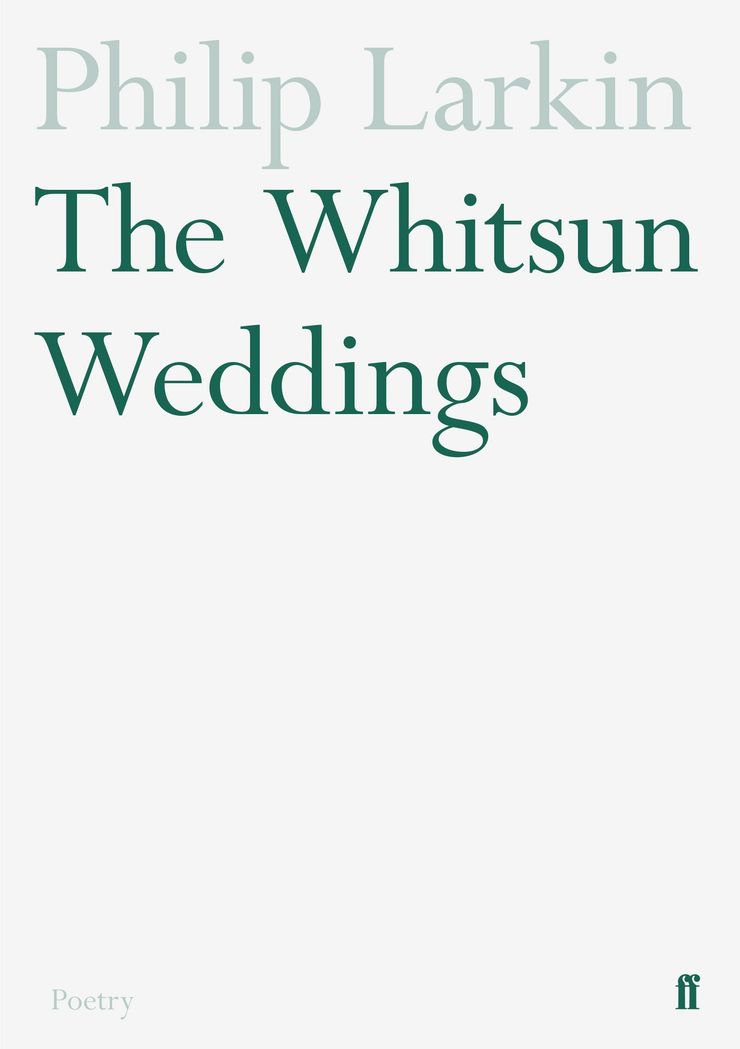
Philip Larkin is the most extreme case of a great modern poet who was threatened with a second death when his poems were edited into chronological order for a Collected Poems that forgot even the titles of the separate volumes published in his lifetime. Luckily the mistake has been corrected since, and a compendium which restores the original groupings is now available: but it was a close-run thing, because the design of each slim volume was critical to its overall effect. Of the three mature volumes, the second one, The Whitsun Weddings, would be my pick for a favourite, although in fact I was introduced to him through the first, The Less Deceived, and for years kept it with me, convinced that nothing could come near it.
But the true proof of Larkin’s supreme art was that he could go on so intensifying his achievement that he defeated the law of rising expectations. With a tonal range stretching effortlessly from colloquial punch to highflying sonority, The Whitsun Weddings turned out to have everything, including a title poem whose last line about the arrow shower (‘Sent out of sight, somewhere becoming rain’) became a call sign for a generation. It even had the portents of death that mark the third volume, High Windows, and the volume beyond, the one never completed, that would have contained the blood-chillingly desolate ‘Aubade’. There might not, at first blush, seem to be much joy in him; but he gets the whole truth of life’s transience into unforgettably beautiful poetry, and it is hard to think of a greater source of joy than that.
Poetry Notebook
by Clive James
With his customary wit, delightfully lucid prose style and wide-ranging knowledge, Clive James explains the difference between the innocuous stuff that often passes for poetry and a real poem: the latter being a work of unity that insists on being heard entire and threatens never to leave the memory. A committed formalist and an astute commentator, he offers close and careful readings of individual poems and poets (from Shakespeare to Larkin, Keats to Pound), and in some case second readings or re-readings late in life – just to be sure he wasn't wrong the first time! Whether discussing technical details of metaphorical creativity or simply praising his five favourite collections of all time, he is never less than captivating.
